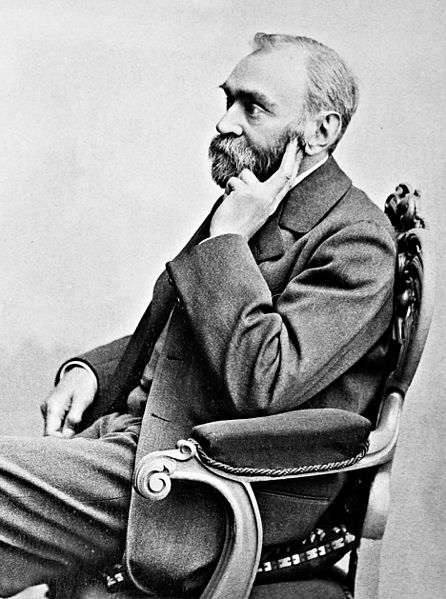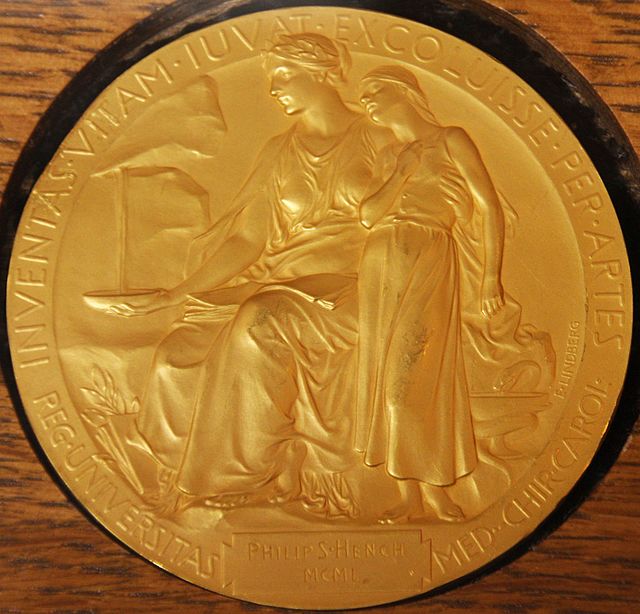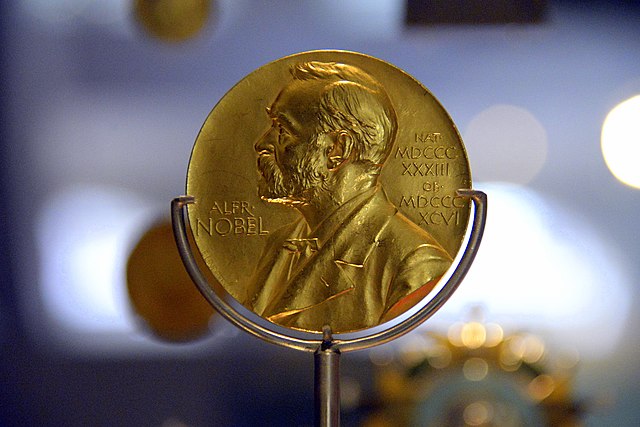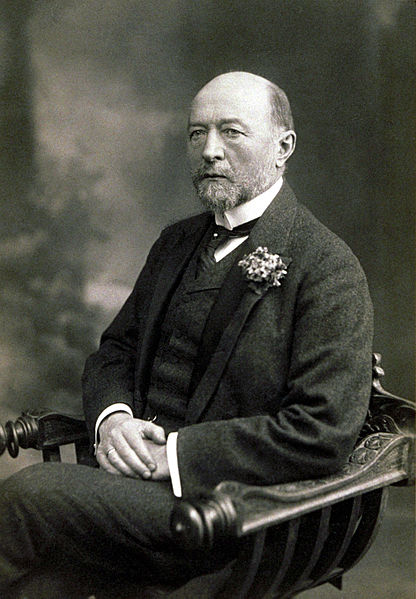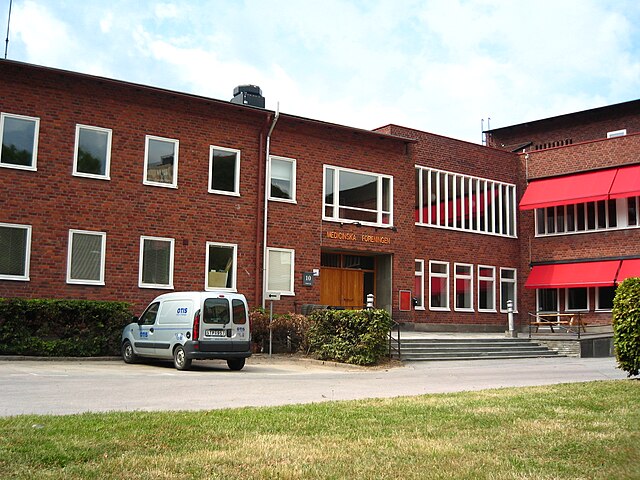Nobel Prize in Physiology or Medicine
The Nobel Prize in Physiology or Medicine is awarded yearly by the Nobel Assembly at the Karolinska Institute for outstanding discoveries in physiology or medicine. The Nobel Prize is not a single prize, but five separate prizes that, according to Alfred Nobel's 1895 will, are awarded "to those who, during the preceding year, have conferred the greatest benefit to humankind". Nobel Prizes are awarded in the fields of Physics, Medicine or Physiology, Chemistry, Literature, Economics and Peace.
Nobel was interested in experimental physiology and set up his own laboratories.
The reverse side of the Nobel Prize for Physiology or Medicine
Alexander Fleming's 1945 Nobel Prize medal for Physiology and Medicine on display at the National Museum of Scotland, Edinburgh.
Emil von Behring received the first Nobel Prize in Physiology or Medicine in 1901.
The Karolinska Institute is a research-led medical university in Solna within the Stockholm urban area of Sweden and one of the foremost medical research institutes globally. The Nobel Assembly at the Karolinska Institute awards the Nobel Prize in Physiology or Medicine. The assembly consists of fifty professors from various medical disciplines at the university. The current vice-chancellor of Karolinska Institute is Annika Östman Wernerson, who took office in March 2023.
Building of the Medical Students' Union Medicinska Föreningen
Press Conference for the Nobel Laureates in Physiology or Medicine 2014, held at the Karolinska Institute
Jöns Jacob Berzelius
Carl Gustaf Mosander

